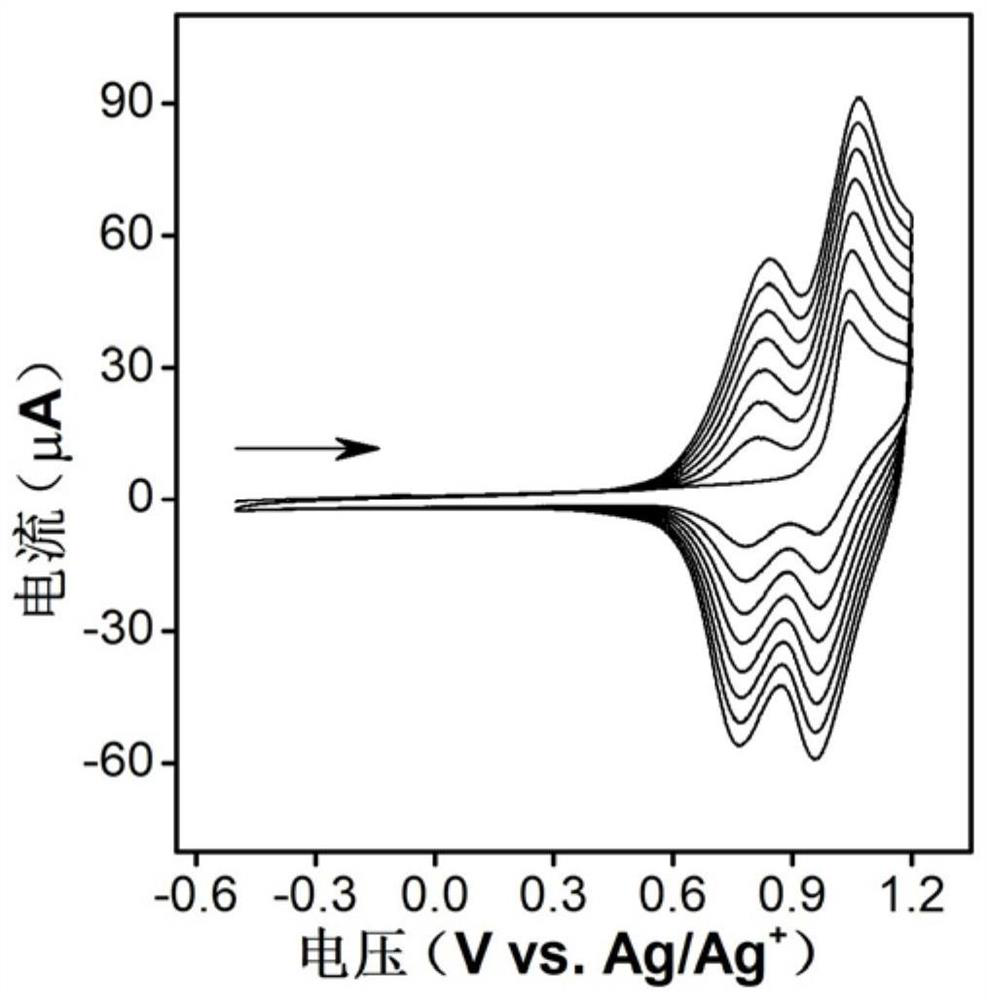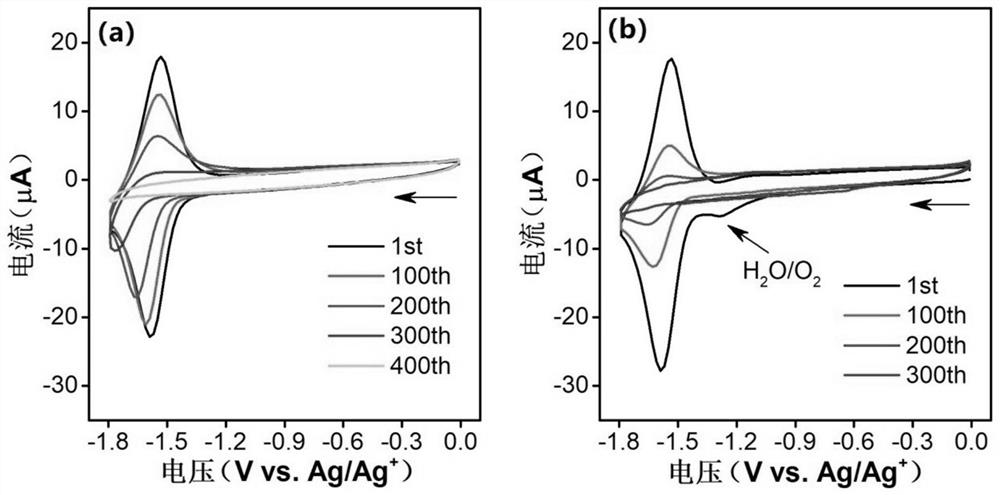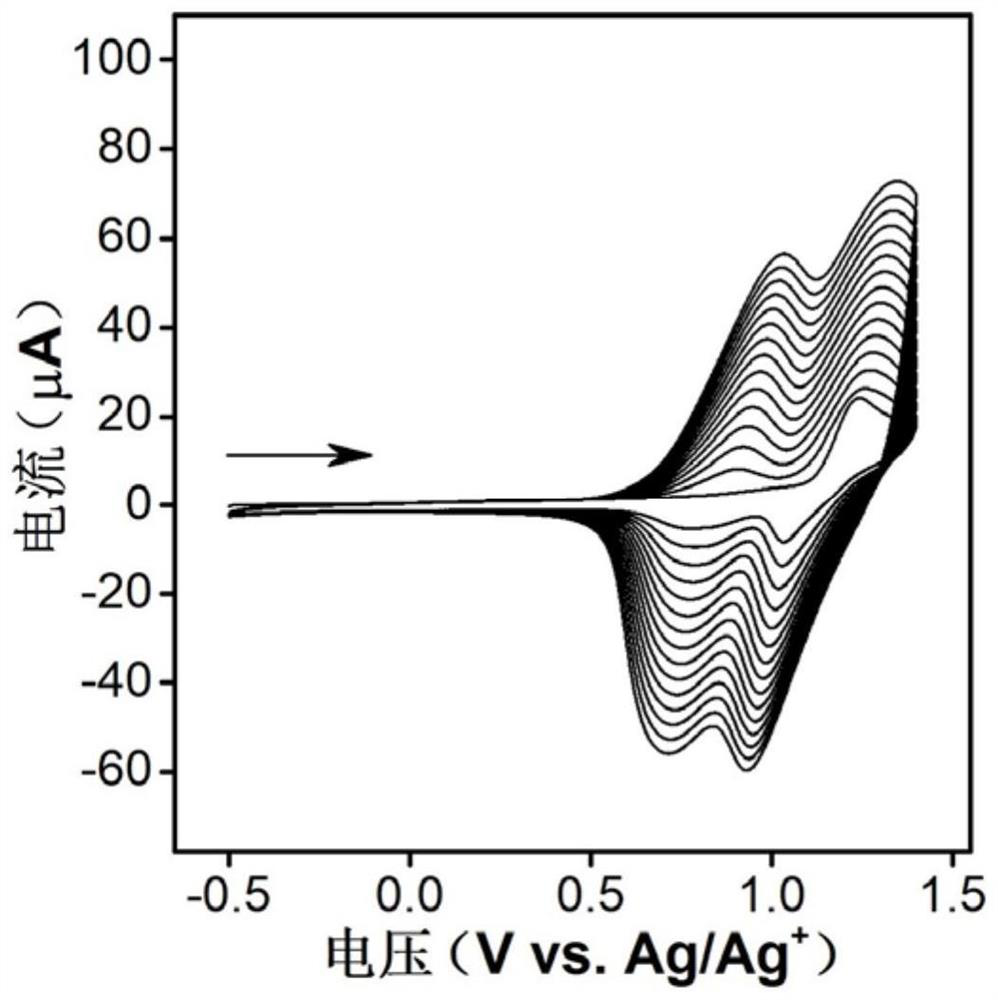Organic electrode with stable water and oxygen as well as preparation method and application of organic electrode
An organic electrode and stable technology, applied in the field of organic electrodes and their preparation, can solve the problems of long-term stability threats of organic materials, performance degradation of electrode materials, loss of mobility, etc., to avoid free electrons, improve stability, and have good application prospects Effect
- Summary
- Abstract
- Description
- Claims
- Application Information
AI Technical Summary
Problems solved by technology
Method used
Image
Examples
Embodiment 1
[0033] A kind of water-oxygen stable organic electrode, its preparation method comprises the following steps:
[0034] 1) Prepare the concentration of benzothiadiazole carbazole as 2.5×10 -4 mol / L, tetraethylammonium tetrafluoroborate concentration of 0.1mol / L electrolyte, the solvent in the electrolyte is made by mixing ultra-dry dichloromethane and ultra-dry acetonitrile according to the volume ratio of 3:2, and then glassy carbon Substrate as working electrode, platinum disk as counter electrode, Ag / Ag + The electrode is used as a reference electrode, and a cyclic voltammetry scan is performed under a nitrogen atmosphere. The potential range of the scan is -0.5V to 1.2V, the number of scan cycles is 8, and the scan speed is 100mV / s. The electrochemical polymerization curve is as figure 1 As shown, the glassy carbon substrate was rinsed with dichloromethane and acetonitrile respectively, and then placed in an oven at 120°C for 1 hour to obtain a glassy carbon substrate dep...
Embodiment 2
[0048] A kind of water-oxygen stable organic electrode, its preparation method comprises the following steps:
[0049] 1) The concentration of anthraquinone carbazole is prepared to be 2.5×10 -4 mol / L, the concentration of tetraethylammonium tetrafluoroborate is 0.1mol / L electrolyte, the solvent in the electrolyte is ultra-dry dichloromethane, then the glassy carbon substrate is used as the working electrode, the platinum disk is used as the counter electrode, Ag / Ag + The electrode is used as a reference electrode, and a cyclic voltammetry scan is performed under a nitrogen atmosphere. The potential range of the scan is -0.5V to 1.2V, the number of scan cycles is 15, and the scan speed is 100mV / s. The electrochemical polymerization of anthraquinone carbazole curve like image 3 As shown, the glassy carbon substrate was rinsed with dichloromethane and acetonitrile respectively, and then placed in an oven at 120°C for 1 hour to obtain a glassy carbon substrate deposited with ...
PUM
 Login to View More
Login to View More Abstract
Description
Claims
Application Information
 Login to View More
Login to View More - R&D
- Intellectual Property
- Life Sciences
- Materials
- Tech Scout
- Unparalleled Data Quality
- Higher Quality Content
- 60% Fewer Hallucinations
Browse by: Latest US Patents, China's latest patents, Technical Efficacy Thesaurus, Application Domain, Technology Topic, Popular Technical Reports.
© 2025 PatSnap. All rights reserved.Legal|Privacy policy|Modern Slavery Act Transparency Statement|Sitemap|About US| Contact US: help@patsnap.com



